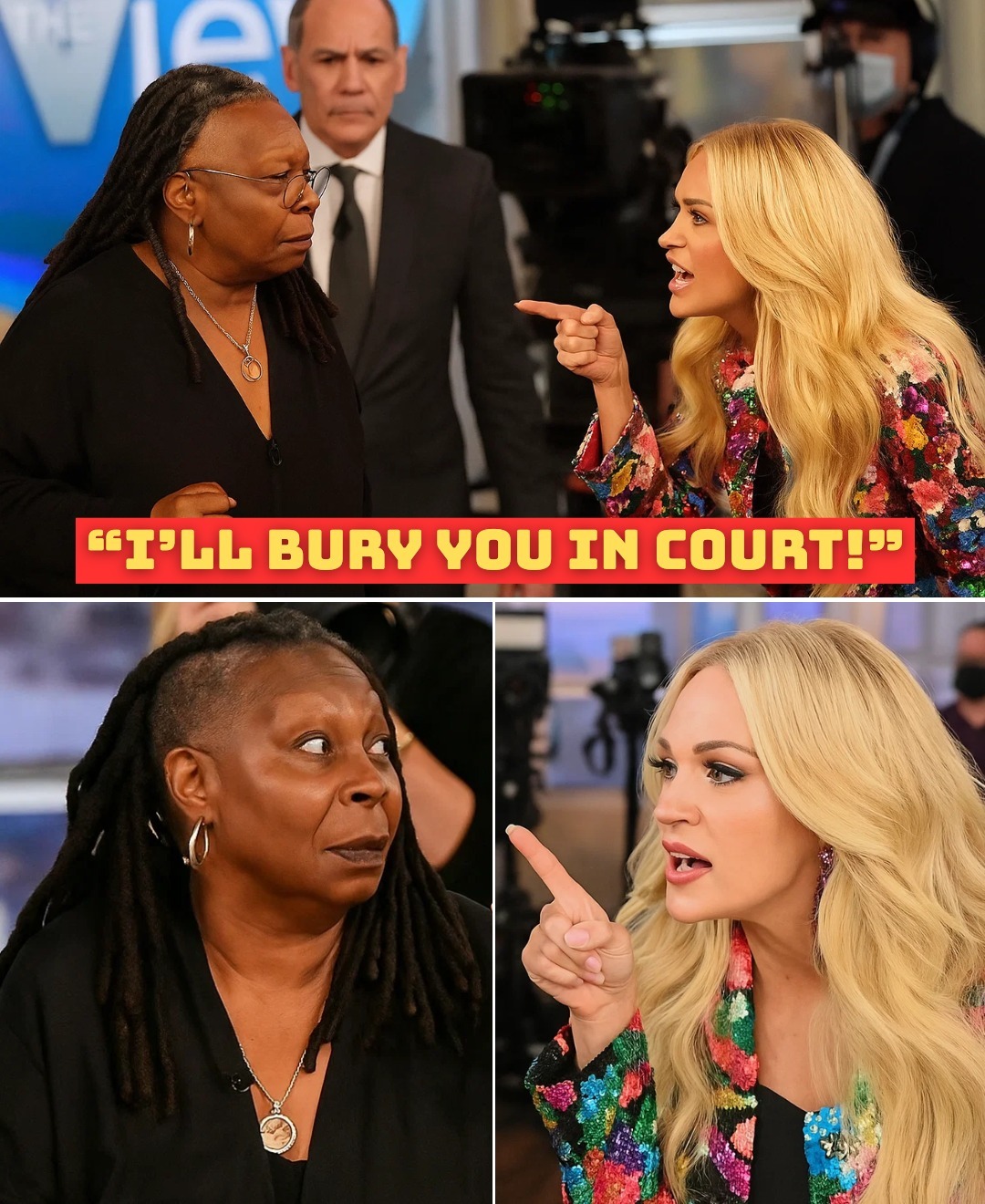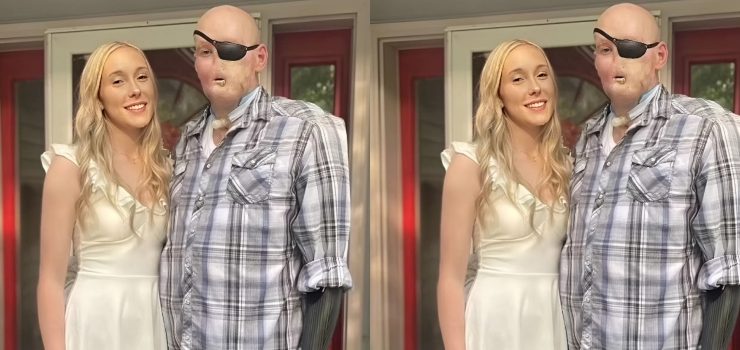Country superstar Carrie Underwood has ignited one of the most explosive showdowns in daytime television history by launching a $50 million lawsuit against ABC and The View, accusing them of intentional and malicious defamation after an on-air comment by Whoopi Goldberg struck a nerve that many argue went far beyond satire.

The legal storm erupted after Goldberg, during a segment that touched on Underwood’s career, marriage, and public image, quipped the now-infamous line: “When are you going to stop feeding the public a lie?” What might have been brushed off as a provocative jab instantly triggered outrage, leaving the studio in stunned silence and viewers questioning whether the hosts had crossed a boundary from playful commentary into outright personal attack. Instead of firing back on social media, as so many celebrities do, Underwood chose silence as her weapon. She withheld immediate responses, giving her fan base time to rally around her.
Within hours, #StandWithCarrie was trending across the United States, with supporters accusing The View of humiliating her purely for ratings. That groundswell of public support gave way to Underwood’s next move—an unprecedented $50 million lawsuit aimed squarely at ABC and its daytime flagship show. The complaint alleges reputational harm, emotional distress, and deliberate defamation, asserting that Goldberg’s words were intended not as commentary but as a calculated strike to damage Underwood’s credibility and persona. Underwood herself issued a powerful statement alongside the legal filing, saying, “This isn’t just about me—it’s about every artist, creator, and public figure who has been humiliated for ratings.
We pour our hearts into our work and we deserve better than to be treated like disposable fodder for controversy.” Her words resonated across the entertainment industry, where stars, musicians, and public figures have long endured media scrutiny but rarely taken such a bold legal step against it. For ABC, the fallout was swift. Executives reportedly scrambled in damage-control mode as the backlash spiraled beyond control. Legal teams pored over the transcript of Goldberg’s words, while public relations advisors urged restraint.
The network eventually issued a brief statement of regret, but many insiders admitted the reputational damage was already done. The lawsuit, legal experts say, could redefine how far television personalities can go under the banner of free speech and satire. Media attorney Janet Klein remarked, “This isn’t about silencing opinion—it’s about demanding a baseline of decency. Words broadcast to millions carry weight, and there are consequences when those words cross into personal attack.” She also pointed out that if Underwood succeeds, the ruling could embolden other public figures, especially women, to challenge the way they’re treated in media spaces.
The implications stretch beyond The View. Late-night comedians, talk show hosts, and satirists who often blur the line between humor and insult may find themselves reevaluating their approach to avoid similar legal entanglements. Figures like Stephen Colbert and Jimmy Fallon, who thrive on edgy commentary, could suddenly face heightened scrutiny over how far their jokes can go before risking legal action. Underwood’s legal fight has sparked a much larger conversation about the role of media in shaping public perception. While critique of public figures is an accepted part of journalism and entertainment, many argue that relentless targeting of their personal lives under the guise of humor has created a toxic culture of character assassination.
In Underwood’s case, the perception is that the comment was not a passing remark but part of a broader media pattern of tearing down high-profile individuals for spectacle. The lawsuit highlights the danger of this trend, underscoring how quickly commentary can morph into cruelty when entertainment takes priority over responsibility. For many of Underwood’s fans, this legal move represents a form of justice not just for her but for anyone who has been subjected to public humiliation under the spotlight. Whether she wins the lawsuit or not, one outcome is already clear: she has forced a reckoning within the media world.
Networks and personalities will now have to think twice about the legal and ethical boundaries of their on-air remarks. The case also puts into sharp focus the enormous power media figures wield and the thin line they walk when their words shape public narratives. Carrie Underwood’s lawsuit is far more than a celebrity grievance—it is a call to recalibrate the balance between free expression and respect for human dignity.
In an era where headlines often blur truth and entertainment, her bold stand is forcing both the media and its audience to confront the deeper consequences of words spoken on platforms that reach millions. For Underwood, the fight is personal, but it is also symbolic of a broader battle to end what she and her supporters describe as “broadcast brutality.” Whether or not she emerges victorious in court, she has already succeeded in sparking a vital national conversation about accountability, responsibility, and the dignity owed to those who live in the public eye.





